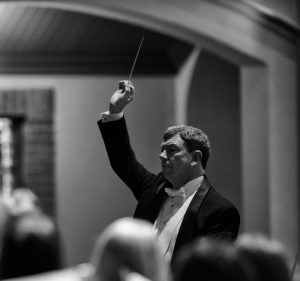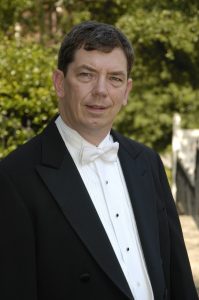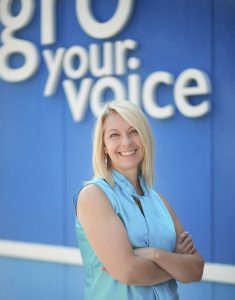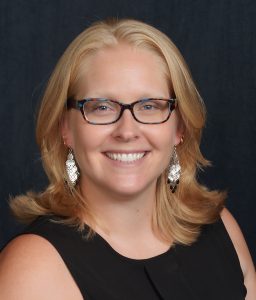In many ways it seemed inevitable that William Baker should become a choral director. Early in life two of the main strands of his existence, faith and music, began to merge through a series of unexpected events. When he was in his middle teens, a wise pastor coaxed the young Atlanta native back to the faith he had abandoned angrily as a child, when at 12 he came home from school to find his mother dead of a stroke. Then at 16 he was accepted into the new Atlanta Symphony Chorus led by the Orchestra’s then-Music Director, choral guru Robert Shaw, who would exert a profound musical influence on the young man. Later William would study music at Mercer University and the University of Georgia and earn a DMA at Chicago’s American Conservatory. But already at 19, when he formed his first choir in Atlanta (the DeKalb Choral Guild, still active after 40 years), the die was cast.

William Baker / Photos courtesy of the Choral Foundation
“I never wanted to be anything else,” said William recently from the offices of the William Baker Choral Foundation in Roeland Park. “I never had any doubt this was what I wanted to do.” Early in life he was an integral part of Robert Shaw’s incredible worldwide recognition, and like many choral directors today he continues to feel humbled by the great man’s footprints.
“He was the greatest of our ‘tribe’ that ever walked the face of the earth during the last 150 years,” he said. Since then, William’s choirs have racked up their own set of achievements: In addition to 23 recordings are performances for the American Choral Directors Association, the Piccolo Spoleto Festival, the American Guild of Organists, radio appearances on NPR’s Performance Today, and countless other activities.
This season the Festival Singers of Kansas City, with the help of capable colleagues including Associate Music Directors Jamea Sale and Christine Freeman, celebrates its 20th anniversary through a series of programs culminating in an April 8th Kenneth Babcock Memorial Concert at Grace & Holy Trinity Cathedral and a May 6th Gala Celebration Concert and Reception at St. Mary’s Episcopal Church.
 Originally formed in Atlanta and now based mostly in Kansas City, the Choral Foundation is a tree with so many branches that one has to keep reminding oneself that is rooted in one thing: creating music, in William’s words, that can change hearts, nurture spirits, and turn souls away from hate and toward hope. “Our goal is getting the music into the voices and the hearts and the ears of the people, reaching as many people as we can,” said William, who founded the Atlanta branch of the Festival Singers in 1985 and the Kansas City version when he moved here in 1998.
Originally formed in Atlanta and now based mostly in Kansas City, the Choral Foundation is a tree with so many branches that one has to keep reminding oneself that is rooted in one thing: creating music, in William’s words, that can change hearts, nurture spirits, and turn souls away from hate and toward hope. “Our goal is getting the music into the voices and the hearts and the ears of the people, reaching as many people as we can,” said William, who founded the Atlanta branch of the Festival Singers in 1985 and the Kansas City version when he moved here in 1998.
It can all be traced back to his early experiences in the midst of rank poverty in East Atlanta. “My father was a salvage man,” William said. “He had a third-grade education. My mother never went to school. My brother was the first person in my family to go to high school, and I was the first one to go to college.” William attributes his love of choral music partly to his mother’s faith and specifically to an album of hymns by the Robert Shaw Chorale, which his mother would play over and over. It was several years before William realized, with amazement, that Robert Shaw lived and worked in his own home town. He wasted no time looking him up.
“As a young teenager I’d take the bus downtown and sneak backstage and watch Shaw lead rehearsals. One time I got thrown out, but I snuck between the risers and watched the rehearsal between people’s feet.” A gifted baritone, William landed a position as choral soloist in Atlanta’s Cathedral of Christ the King (he didn’t tell them he was only 16), and not long afterward his choir director, a friend of Shaw’s, asked him: “Why aren’t you singing in the Atlanta Symphony Choir?” So he picked up the phone, told Shaw he had a young baritone for him, and soon afterward the high school junior was a member of perhaps the most prestigious choir in America.

Executive Associate Music Director Jamea Sale
From there it was a flurry of world tours, Grammy Award-winning recordings, and performances in Carnegie Hall, the Kennedy Center and even Jimmy Carter’s White House. “No one who walks the face of the earth has been more blessed than me,” William said. “And since I don’t really deserve to be here to start with, this is where I think the arts should live: with the everyman.” Sheer humility, he added, “is what Robert Shaw gave me, and gave the world: ‘The melting pot that sings,’ as he called it.”
Currently the Choral Foundation consists of no fewer than nine separate “branches,” including the two Festival Singers ensembles in Kansas City and Atlanta, an Institute for Healthy Singing, an enormous choral library (the Jane Sullivan Choral Resource Library includes some 6,000 titles, housed at the Foundation’s rambling Roeland Park office space) and several community choirs including the three Summer Singers ensembles, where committed amateurs can experience the great choral masterpieces first-hand.
The latter are essential to the core mission because they offer, to singers of wide-ranging abilities, opportunities they might otherwise never have had. All the sleepless nights and fundraising headaches fade away, William said, at the moment “when you have a 45-year-old … come up to you with tears rolling down their face and say, ‘I sang the Brahms Requiem! I’ve listened to recordings of it for 20 years, and today I sang it!’ It’s all worth it for that.”

Kansas City Associate Music Director Christine Freeman
But it is the Festival Singers, the 50-member “professional-level volunteer choir,” that during the years has performed vast swatches of repertoire: Not just big choral masterpieces of Bach, Handel, Haydn, Mozart, Verdi, Brahms, Berlioz and Duruflé, but gospel and folk music and works of living composers. The 20th Anniversary celebration culminates this spring with a concert on April 8th of Mozart’s “Great” Mass and a world premiere (Seven Last Words by Composer-in-Residence Ed Frazier Davis) and with the May 8th Gala. Ed is a prize-winning composer who happens to be the son of renowned conductor Sir Andrew Davis: The English-American UMKC Conservatory doctoral student also sings in the Kansas City Chorale. The Gala Concert will include a sort of “greatest hits” from the choir’s a cappella repertoire, William said, an game mix of serious and fun-spirited works.
William said the Foundation is known not just for its mission of artistic excellence but also for its efforts in inclusion and accessibility. “We have a ‘no barriers’ policy,” he said, in terms of gender, age, religion, sexual orientation, national origin or even belief system. “I would want people to think that we came to serve, to love and to create,” he said. “These are things of timeless beauty and worth that will outlive us all.”
Great sacred choral works are often Christian in message, he added, but that need not limit their reach. “I connect Bach’s St. Matthew Passion to my own faith, to my own belief … and to my overwhelming sorrow and joy for the sacrifice that Jesus Christ made for me and for humanity. But the person next to me may identify with that piece for the sheer power of its message. … Some might identify with it from a purely intellectual-analytical standpoint, some may identify from a purely aesthetic standpoint. … But the thing that makes it so great is that is it larger than allof those places that we cling to.”
—Paul Horsley
For tickets to the April 8th and May 6th events visit festivalsingers.org.
To reach Paul Horsley, performing arts editor, send email to paul@kcindependent.com or find him on Facebook (paul.horsley.501) or Twitter (@phorsleycritic).
